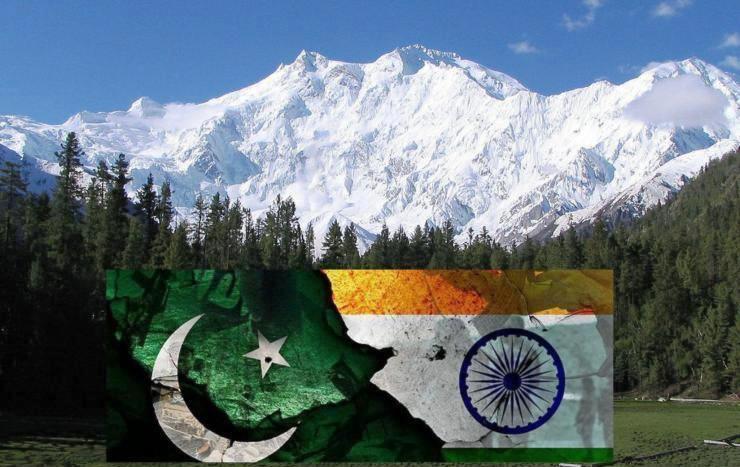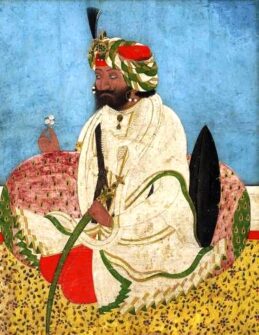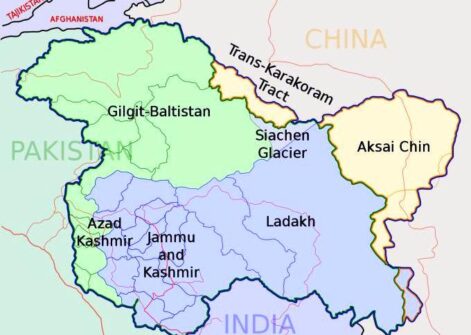The Forgotten Conflict/Kashmir. A Decades-Long Crisis in the Heart of Asia.

Kashmir, a small Himalayan region claimed by India and Pakistan, is the protagonist of a frozen conflict that arose between Islamabad and New Delhi. The rivalry gave birth to four wars interspersed with political tensions.
It all started in 1947, when the United Kingdom granted independence to the nations of the Indian subcontinent and each territory had to decide its own future. In the case of Kashmir, with a Muslim majority ruled by a Hindu ruler, the Maharaja opted for independence but then turned to India to subdue a tribal invasion from Pakistan.

Maharaja Gulab Singh Jamwal (1792–1857) was the founder of Dogra dynasty and the first Maharaja of the princely state of Jammu and Kashmir. (Historical Archive)
The choice was not recognized by Islamabad, which owns a third of the territory and claims the remainder.
An advisory referendum, proposed by the United Nations in 1947, never took place because the region was not demilitarized. A small part of Kashmir, which is called Aksai Chin, is occupied by the People’s Republic of China.
Since 1986, Indian Kashmir has been wracked by a civil war fought by militant groups and New Delhi’s security forces. A part of the local population had never abandoned the dream of independence and in an initial phase, the insurrection was fought by the Jammu and Kashmir Liberation Front (JKLF), an organization aimed at the self-determination of this territory.
Constant clashes with the Indian Army and a series of splits weakened the JKLF, which fell on hard times.
From the early 1990s, the fighting was carried on by the pro-Pakistani Hiz-bul Mujahideen (HM) and later also by radical Islamic groups such as Lashkar-e-Taiba, responsible for attacks in India. The bloodiest phase of the insurrection ended in the early 2000s but sporadic violence continues to be recorded.

Kashmir map. CC BY-SA 3.0/ University of Texas map library
According to an estimate, prepared by the Hindustan Times, the fighting in Kashmir caused at least 41,000 deaths in the period between 1990 and 2017, with 22,000 losses suffered by militants, 14,000 by civilians and 5,000 by the security forces. Hundreds of thousands of people have instead been forced to flee their homes as a result of the conflict.
The Indian-administered territory, called Jammu and Kashmir, enjoyed partial autonomy guaranteed by the Constitution until 2019 when the nationalist government in New Delhi revoked the region’s status. The poet Zareef Ahmad, interviewed by the National Public Broadcast portal, explained: “For five thousand years Kashmir was able to enjoy political sovereignty and an inclusive culture from a religious point of view” but everything fell apart “when India and Pakistan were divided on the basis of the creed practiced”.

Srinagar, the largest city of Kashmir. CC BY-SA 3.0/KennyOMG
In Srinagar, the capital of Indian Kashmir, Hindu temples and mosques stand next to each other, silent witnesses of a distant past. Tens of thousands of Indian soldiers have been deployed in Kashmir since August 2019 to quell any opposition to the reorganisation. The deployment was accompanied by reports of harassment and violence against civilians and the arrest of more than 5,000 people in the second half of 2019. Mass arrests of politicians, activists and demonstrators continued throughout 2020. That same year, a crackdown on freedom of the press was introduced and schools, universities and colleges were closed, firstly for safety reasons and the coronavirus pandemic. Freedom of association continues to be severely restricted and subject to intrusive controls by the authorities.
During 2021, attacks against the Indian military apparatus were replaced by violent actions committed against civilians, such as medical teachers or shopkeepers, guilty only of being Hindus, Sikhs, or recent immigrants. The elimination of Kashmir’s autonomy has prompted many young locals, despite Indian propaganda, to join groups linked to extremism. The self-styled Islamic State has attempted to expand its activities in the Indian subcontinent, taking advantage of the conditions of poverty and inequality experienced by the Muslim minority.
In Kashmir, this infiltration led to the birth of the Wilayah Islamic State of Jammu and Kashmir (ISJK), which, after several attacks, became the Wilayah al-Hind (ISH). The ISH, after a prolonged pause in its anti-Indian propaganda and violent activities in the second half of 2022, returned to being more active in 2023. The presence of a local network of the self-styled Islamic State is indicative of how the ideology of the group, despite the global efforts made to suppress it, has had and continues to have a following in some areas of the world.

Police in Kashmir confronting protestors. CC BY-SA 4.0/Seyyed Sajed Hassan Razavi
The Daily Sabah portal has indicated, in an article published online, that the United Nations is in a unique position to play a more active mediation role and bring about a peace process in Kashmir through talks between the nations involved and some large powers or by exploiting the new procedures and mechanisms of the organization. Among the most urgent needs is that of demilitarizing the conflict area with a coordinated withdrawal of the forces (including paramilitary ones) of India and Pakistan. Consideration of the rights of the parties may be considered after demilitarization is consolidated and after the peace process is on a solid track. Furthermore, the success of any initiative cannot ignore the implementation of a ceasefire and the abandonment of the inalienable claims by the parties involved.
Andrew Walton



